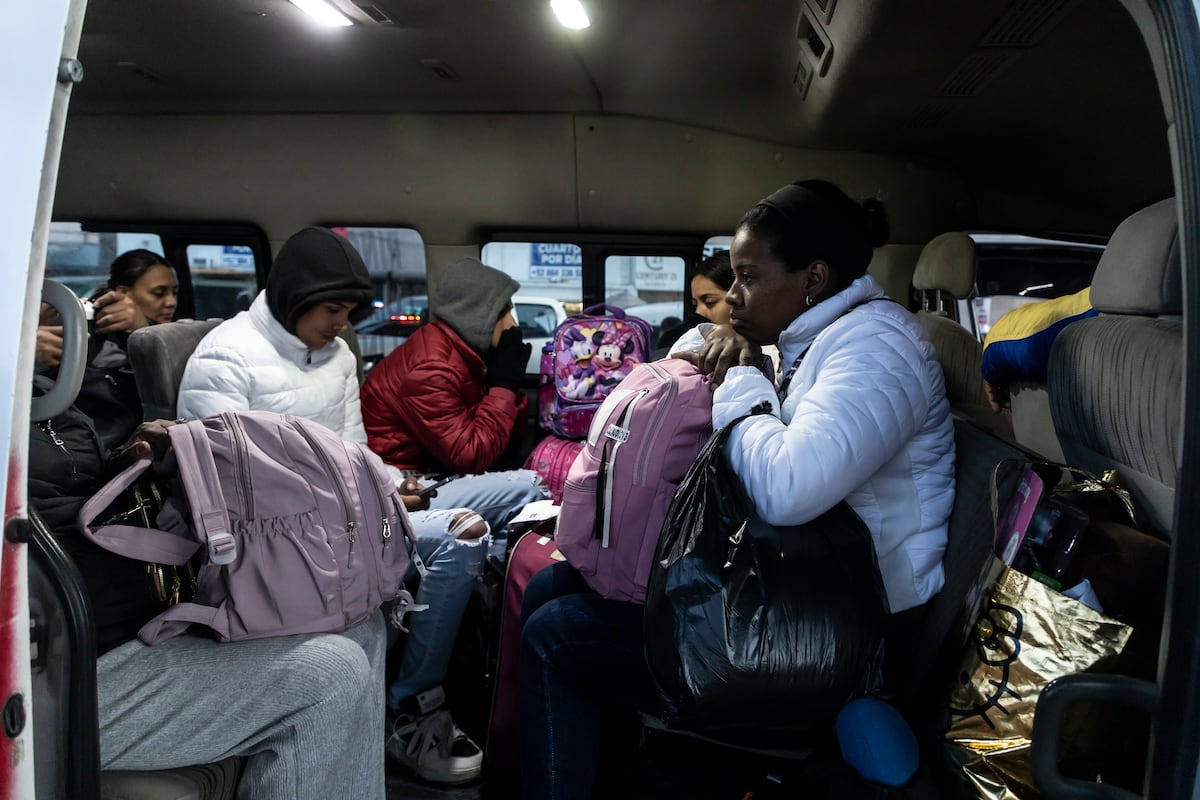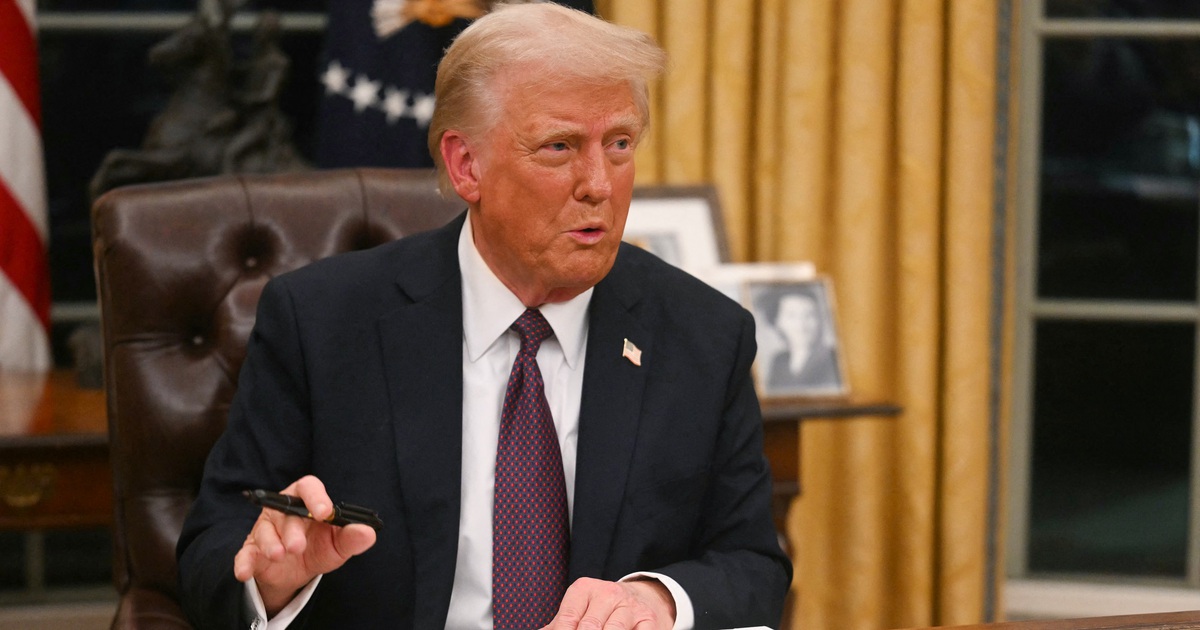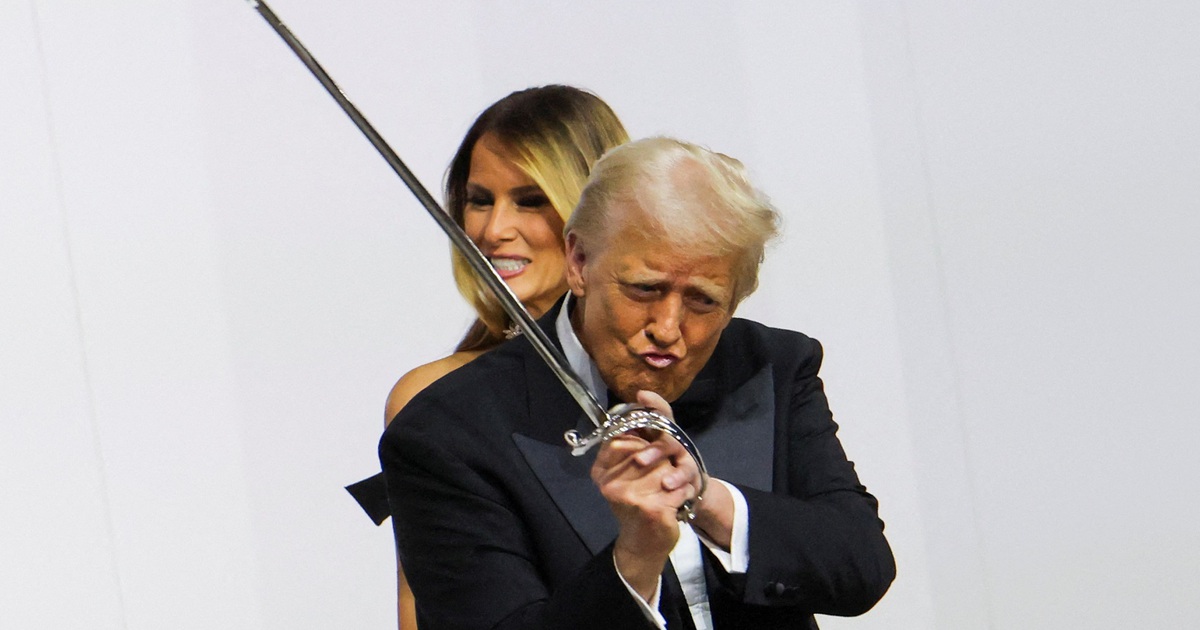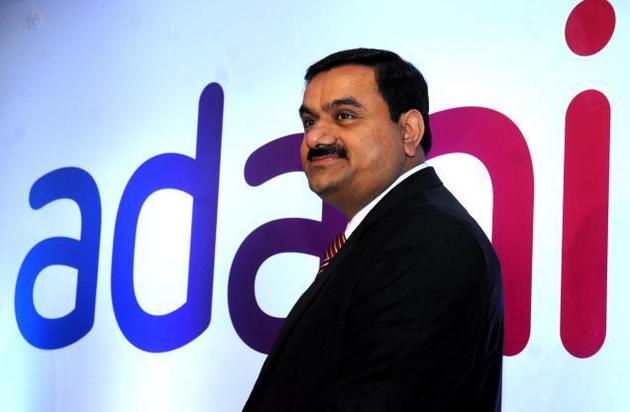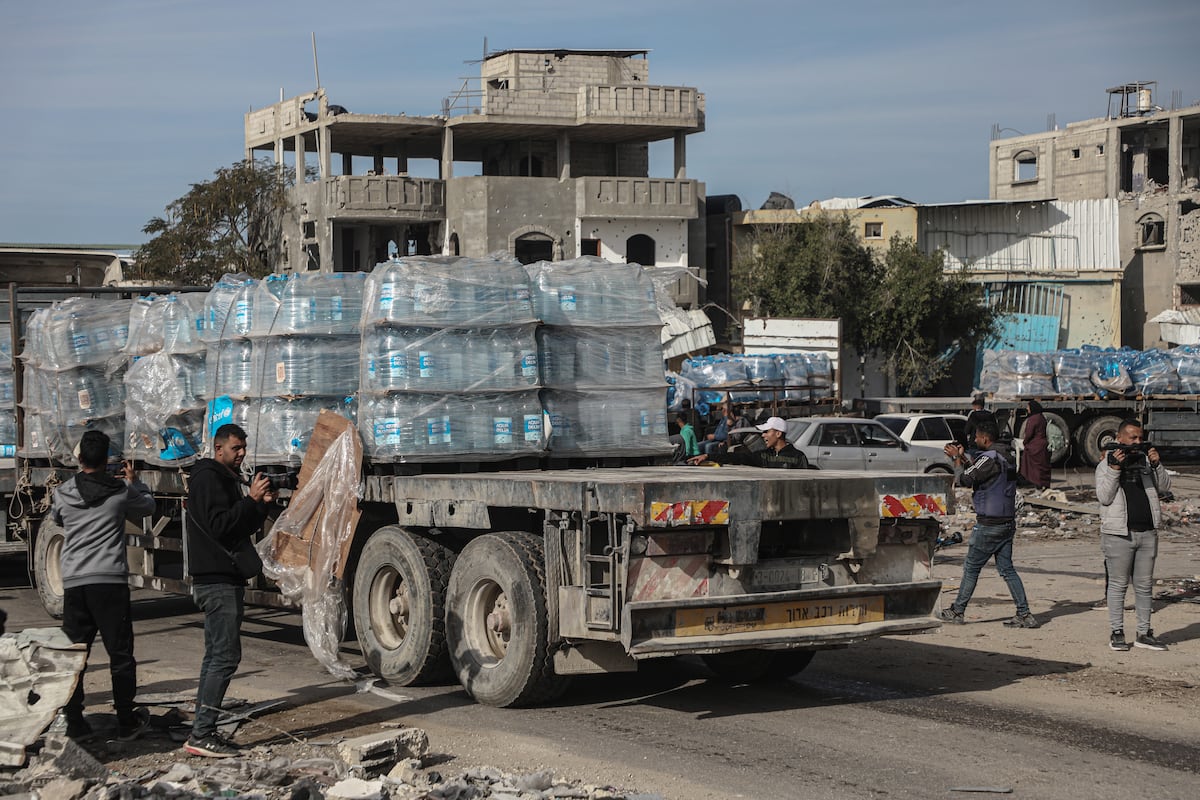For just one day, Odalys Fundicheli and her granddaughter Lía have been trapped in a limbo from which almost no one still knows how to get out. Fundicheli, 62, comes from Cuba and had an appointment to cross the border to the United States through Tijuana this Tuesday. On the other side, his family was waiting for him. But CBP One, an application that the US Government opened to manage entries in a regulated manner, has ceased to exist with the inauguration of Donald Trump. One day before his shift everything has fallen apart and all appointments have been cancelled. “We feel a lot of frustration and helplessness,” says the woman, while her 14-year-old granddaughter cries next to her. “We were going to meet with my daughter who lives in Dallas, but they say the application is canceled. I don’t know what will become of us, it is the first time we left Cuba,” Fundicheli acknowledges. Like them, thousands of people have been left helpless, since this Monday, on the border between Mexico and the United States.
Trump was still speaking in his inaugural speech, when on the other side of the wall, the future of thousands of migrants was evaporating. The president has made good on his threats to eliminate CBP One and the asylum systems before even finishing the presentation of his new Government. Thousands of people have thus seen their American dream end before it began. All of them are now left in a defenseless situation in Mexican territory, where some have permission to transit through the country for 20 days and many others do not even have that.
Just a few hours have made a difference. Early this Monday, the last groups of migrants under the Biden Administration have still crossed into the United States. José Louiza was on the next shift, the 1:00 p.m. He formed at night with his wife and his 13-year-old son. They had a printed confirmation of their appointment, and each one had a cloth backpack. They have waited patiently and quietly in the subzero cold of Ciudad Juárez as the hours passed. A little before 11:00 the notice arrived: “Existing scheduled CBP One appointments are no longer valid.” After reading it, his wife threw herself desperately on the ground, in a gesture that reflects the helplessness behind nine months of travel, the effort of crossing a jungle and six countries to be just one step away: “It’s not human,” summarizes Louiza, who was a fisherman in Venezuela.
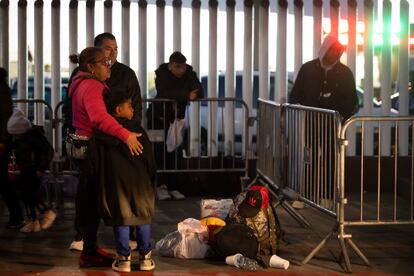
The fall of this system has been a blow to the migrant spirit. In the country, thousands of people entered the application every day hoping to be chosen for an interview at one of the eight border points. With that hope they endured extortion and kidnappings, poorly paid precarious jobs, hunger, cold and fear. With that hope they also avoided irregular crossings and paying coyotes to help them pass without papers. “The one that is going to win out of all this is going to be crime, that is without a doubt,” summarizes Juan Fierro, pastor of the El Buen Samaritano shelter, in Ciudad Juárez.
In the border city everything was calm until today when everything became sad. The groups are divided up, some arrive at the churches and the dining halls, others at the sentry boxes on the bridges. The plea is the same: “Forgive us, we are seeking guidance.” No one knows for sure what options they have left. At the moment, few. Trump has announced that he is going to re-establish the Stay in Mexico program (MPP), which forces migrants to wait on Mexican soil to have an appointment with which to continue their refugee process in the neighboring country. A long and expensive procedure that already went wrong in 2019 and with which Claudia Sheinbaum’s Government has not yet said it agrees.
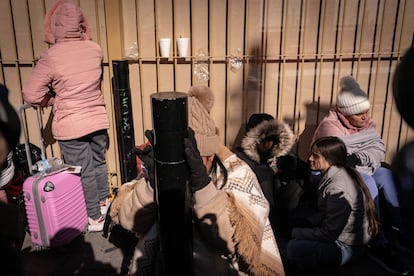
With this measure, Trump thus transfers the management of the immigration crisis to the Mexican Government, which will also have to face the waves of Mexican deportees (what will happen to migrants from other countries is still in doubt). To the uncertainty, the new president has only added more fuel this Monday, when he declared a national emergency on the southern border to, among other measures, reinforce it with the presence of the Army.
Canceled appointments
Entire families thought this Monday that they would still have a chance to cross to the other side. This is the case of Giovanni, 38, and his wife Narkys, 37, originally from Venezuela. The two were waiting in front of the entrance to the border port of El Chaparral, in Tijuana. “You feel so many things right now,” he said with resignation and much sadness, “if you knew everything we have gone through to get here…”. He and his wife left Caracas more than a year ago and were waiting in Tapachula for their appointment. They had it on January 20 at 1:00 p.m. “We just received an email saying that all appointments were cancelled.” The Venezuelan still does not know what they will do, because they spent all their money to travel to the border. The same scene of desolation was repeated this Monday from Tijuana to Matamoros, at the eight ports of entry where the 1,450 daily CBP One appointments were processed.
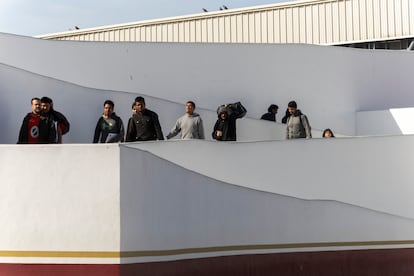
The MPP, Trump’s proposal, was already implemented in 2019. During the time it was active, until 2022, more than 71,000 migrants were forced to stay on Mexican soil until they received a response to their asylum request, according to data from the Washington Office on Latin American Affairs (WOLA). That arrival of migrants was attended to in a very precarious manner by Mexico, in conditions of overcrowding, unhealthiness and insecurity for thousands of people.
” [La llegada del MPP] “It is a unilateral decision that they make, but we do not necessarily share it and we have a different approach, but we are finding the adjustment mechanisms, of course it does not imply obligations for Mexico, some agreements can be reached,” the Secretary of State declared this Monday. Foreign Affairs, Juan Ramón de la Fuente at a press conference. In addition to this measure, the Mexican Government will have to deal with the announced mass deportations. Trump has threatened to send millions of undocumented people to Mexico.
“I’m afraid of what could happen now,” says Father Pat Murphy, director of the Tijuana Migrant House. Currently, the shelter has a maximum capacity for 180 people, but he fears that soon the space will not be enough: “People continue to arrive from the south and they are going to deport many people from the north, I fear that a migration crisis will come worse than the one we experienced.” “We already live.”
The Mexican Government has assured that they are preparing for the massive arrival of migrants, however, local authorities view it with concern. The city of Tijuana decreed an alert last week: “We have to take Donald Trump’s threats seriously and take the necessary measures,” José Luis Pérez Canchola, director of Migrant Assistance at the Tijuana City Council, told Morning Express. , which insists on coordinated work with federal authorities and that the federal migration fund be reactivated with 1,000 million pesos. A few hours after the publication of this article, the municipal official has been fired from his position. “As a result of my recent statements about the need to provide care to the population in transit and for demanding effective coordination of the three levels of Government, the Secretary General of the Government accused me of exaggerating and lying, asking me to sign the resignation,” Pérez Canchola shared through a statement.
Deportations
In Tijuana there are 44 shelters, most managed by churches of different faiths, with capacity for about 5,000 people. The municipal government is setting up a new shelter with space for another 3,000 people. In Ciudad Juárez, Enrique Serrano, general coordinator of the State Population Council, is committed to seeking dialogue with the American side: “There is no official information on a deportation schedule, we know it is going to happen, but we do not know when, where or what amount. We hope that Mexican diplomacy will agree with the North American Government to carry out scheduled and concerted deportations with the Mexican Government, so that we can serve that population.” At the moment, a camp is going to be built, with tents, on land near the wall that separates El Paso to be able to house 5,000 people.
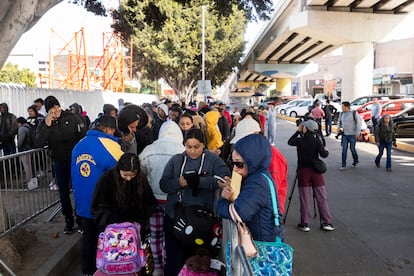
For its part, the Sheinbaum Government will launch the Mexico Abraza te plan, which will offer comprehensive care to Mexican migrants arriving from the United States. The president assured her compatriots that they are not alone. “When they arrive in Mexico there is a program that has to do with welfare support, entry to the IMSS, support for employment, transportation so that they can reach their places of origin and a small initial support if they arrive without resources,” explained the president this Monday.

